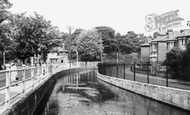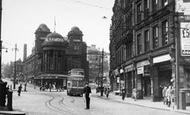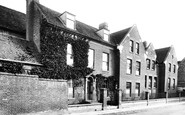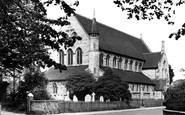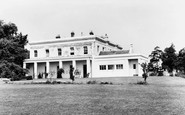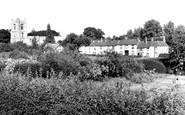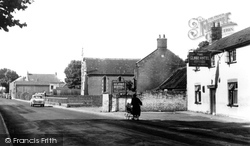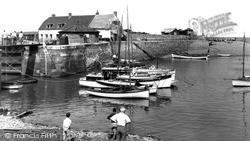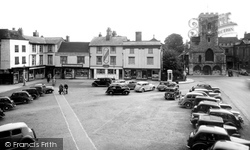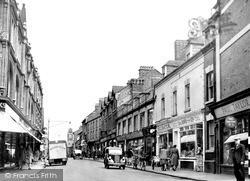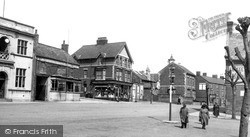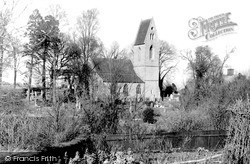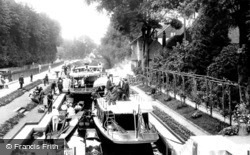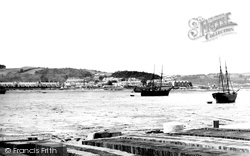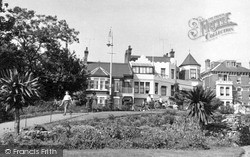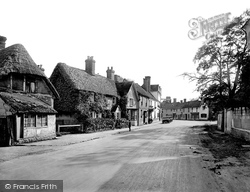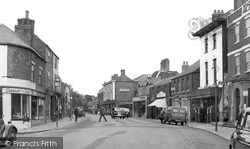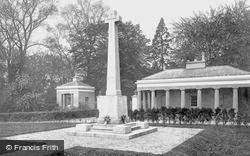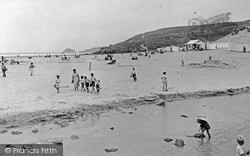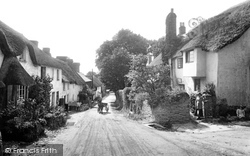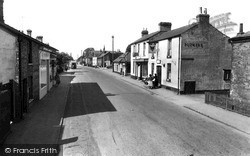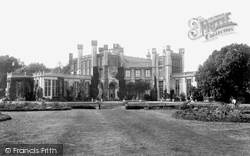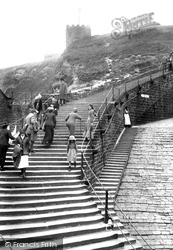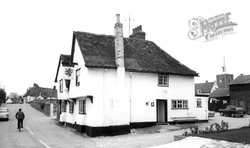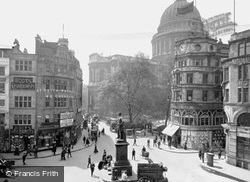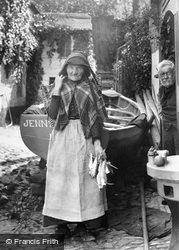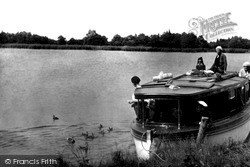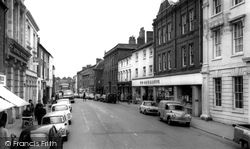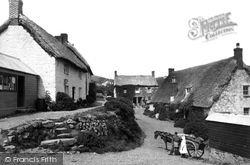Merry Christmas & Happy New Year!
Christmas Deliveries: If you placed an order on or before midday on Friday 19th December for Christmas delivery it was despatched before the Royal Mail or Parcel Force deadline and therefore should be received in time for Christmas. Orders placed after midday on Friday 19th December will be delivered in the New Year.
Please Note: Our offices and factory are now closed until Monday 5th January when we will be pleased to deal with any queries that have arisen during the holiday period.
During the holiday our Gift Cards may still be ordered for any last minute orders and will be sent automatically by email direct to your recipient - see here: Gift Cards
Places
11 places found.
Those places high-lighted have photos. All locations may have maps, books and memories.
Photos
54 photos found. Showing results 601 to 54.
Maps
494 maps found.
Books
25 books found. Showing results 721 to 744.
Memories
9,978 memories found. Showing results 301 to 310.
Fun Times
I was born in Lower Aire Street in 1944, my brother was born in 1942. I left when I was 8 years old but can still remember the street. We lived next door to Mr and Mrs Wiley on one side and Mrs Hargreaves on the other ...Read more
A memory of Windhill in 1944 by
Dorset Dairies
Jacqueline Jackson, if you read this email me please waxrose@me.com Would your great grandfather be a Harry Hann? He was the owner of Dorset Dairies next to my birthplace in Factory Road, Eastleigh. I went to school in ...Read more
A memory of Bishopstoke by
Manchester Road
Born in Ryan Street. I remember walking all the way down Manchester Road to St Joseph's Infant School, which at that time was on Grafton Street and part of the Girls School, it seemed to take ages, we walked past all the pubs and ...Read more
A memory of Bradford in 1955
Helmshore 1950 1968
I was born in Musbury Road at the bottom of Tor Hill and spent 5 years with Tor as my back yard; my name is still chiselled in the rocks at the top. Anyone remember the Tor Mile race? In 1955 we moved up to 3, Lancaster ...Read more
A memory of Helmshore by
Mother's Brother And Sisters
Just after the war Dad, Mum and I would travel every other weekend to visit aunts and uncles and cousins on our Norton motorbike and sidecar. We usually based our visit with Aunt Flo and Uncle Stan (a wartime despatch ...Read more
A memory of Andover in 1940 by
Harry 'ginger' Scott
My father passed away in 1955. I returned from National Service in Germany in time to visit him in Winchester hospital, sadly my older brother Ron was a regular soldier serving in Hong Kong and could not get back in time to ...Read more
A memory of Eastleigh in 1955 by
Born In Fenny Stratford
I was born at number 8 Woodbine Terrace; in attendance was nurse Brinklow the local midwife and Dr Gleeve. My parents were Jim and Vera Cusack. Just after the begining of the war my mother, ...Read more
A memory of Fenny Stratford in 1948 by
Home Away From Home
I was a young adult when I arrived in Rochford on a Sunday afternoon in June 1978, to take up my position as student nurse at Rochford Hospital. I was from Cape Town in South Africa and the feel of this village promised ...Read more
A memory of Rochford in 1978 by
Laleham Abbey
My sister Kathleen Taylor (former name) was cook in the kitchen for the retired old ladies. I was always staying with her during school holidays. Her husband then (now deceased) was Barry Taylor and they had two children, Sarah born ...Read more
A memory of Laleham in 1970 by
Longleat
My grandfather Cecil Welch, who was the local estate agent and auctioneer based at the Old Town Hall in the High Street, bought several old cottages next to the blacksmiths in Church End for his son John and wife Peggy, at the vast ...Read more
A memory of Great Dunmow in 1948
Captions
2,019 captions found. Showing results 721 to 744.
The Victorian Methodist church beyond and Georgian Ilex Court beyond that remain, backed by orchards and separated by closes of new houses.
The current lock gates, erected in 1913, held back water for unloading ships at low tide. They are now used to sluice the channel clear of pebbles.
The origins of St Nicholas' Church date back to the 12th century. It was built by Abingdon Abbey to cater for their lay servants, their tenants and passing pilgrims.
The building and its tower, distinguished by its tracery and four gables, date back to 1892. The first three shops on the right have all changed hands over the years.
Rothwell's history dates back to long before the Danish invasion of the Dark Ages. 4,000 years ago Bronze Age settlers came to this area, followed by the Romans.
The church has a chalice and paten dating back to the 16th century, and in its grounds stands the 10th-century cross of Irbic.
As the reign of Queen Victoria receded, a slightly more laid-back atmosphere was staring to take hold. The Great War - only a year away - would change things for ever.
It looks southwards towards the Garth and Bangor, which is backed by the Snowdon mountains.
This photograph looks back at the same houses as those shown in 41386 and 41387. The well-laid out public gardens give a tropical air to the scene.
The abbey, at the heart of Dorchester, dates back to the 12th century. The White Hart Hotel and garage can be seen along the street.
The tall cluster of stacks to its right belongs to No 45, The Mansion House, a Georgian house set back from the street front, in which Sir Norman Angell was born, the winner of the 1933 Nobel Peace Prize
We travel back to the London Road, and at the entrance to the Staff College, we find the War Memorial, erected in 1922 at a cost of £433.
The greatest attraction of Perranporth is its extensive beach of golden sand backed by dunes.
Thurlestone takes its name from a holed, or thirled, rock just out at sea in Bigbury Bay, which was mentioned in a Saxon charter way back in 845.
This view looking back towards the Greyhound shows the High Street before the major developments of the 1980s and 1990s.
Highcliffe Castle was once one of the grandest stately homes in England; a restoration programme is bringing it back to its former glory.
As the reign of Queen Victoria receded, a slightly more laid-back atmosphere was starting to take hold. The Great War – only a year away – would change things for ever.
Known locally as Jacob's Ladder, the original steps dated back six hundred years. Coffins would have been carried from the town below up to the church.
The chimney stack in the foreground has been removed, and the building has been extended at the back. The main bar is dominated by a central fireplace with built-in bread oven.
At the junction with Paternoster Row, Cheapside swings from the north in an arc and heads east towards the Bank.
The fisher women of Newlyn clustered at the fish-stalls with their 'cowels', baskets carried on their backs, which were supported by a band passed round their foreheads.
On the right of the group, three young ducklings are hitching a ride on their mothers' backs. Reed beds can be clearly seen at the far edge of the broad, with trees on land behind.
On the extreme right, partly visible, is the entrance to the local Conservative club, and on the left is the facade of the National Provincial Bank, now Nat West.
These thatched granite cottages have turned their backs to the weather and the comfortless winds off the open seas.
Places (11)
Photos (54)
Memories (9978)
Books (25)
Maps (494)

